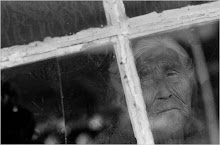 Diversity was the topic at a live taping of Intersections, a radio program on NPR-affiliate KBIA in Columbia, Missouri. The show hosted a panel of diversity experts living in the Columbia area. They included Ibtisam Barakat, a Palestinian author and poet; Eduardo Crespi, the Argentinian founder/director of Centro Latino; Marie Glaze, the human rights specialist for the City of Columbia (she also lived in Columbia's First Ward during segregation in the 50's and 60's); Nathan Stephens, an African American professor and director of the University of Missouri Gaines/Oldham Black Culture Center; and finally Chief Diversity Officer at the University of Missouri, Roger Worthington, whose childhood memories include his Latina mother choosing not to teach him Spanish so that he could fit into White culture.
Diversity was the topic at a live taping of Intersections, a radio program on NPR-affiliate KBIA in Columbia, Missouri. The show hosted a panel of diversity experts living in the Columbia area. They included Ibtisam Barakat, a Palestinian author and poet; Eduardo Crespi, the Argentinian founder/director of Centro Latino; Marie Glaze, the human rights specialist for the City of Columbia (she also lived in Columbia's First Ward during segregation in the 50's and 60's); Nathan Stephens, an African American professor and director of the University of Missouri Gaines/Oldham Black Culture Center; and finally Chief Diversity Officer at the University of Missouri, Roger Worthington, whose childhood memories include his Latina mother choosing not to teach him Spanish so that he could fit into White culture.No caucasions sat on the panel.
So what does Diversity mean, and why is it so important? The panelists responded that "diversity" equals "difference" and that diversity is important because a) the world is intermixing and if we don't learn to accept some of our differences then we're going to fight a lot, and b) diversity can be a source of strength, allowing people of different backgrounds to share unique knowledge.
Do we really need a panel of experts to tell us this stuff?
Probably yes.





